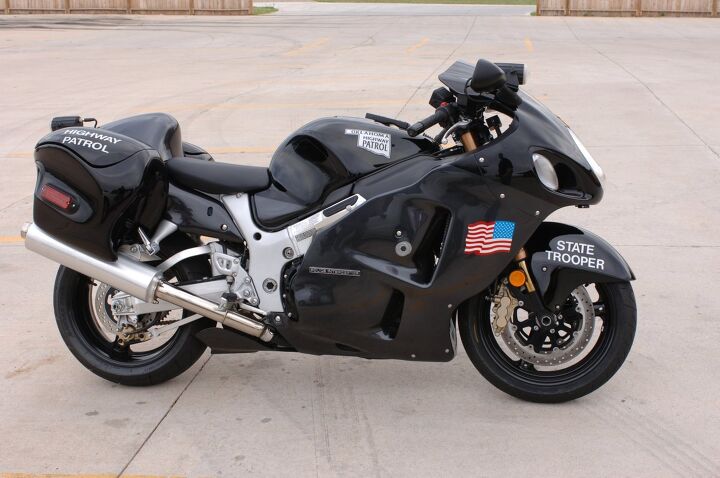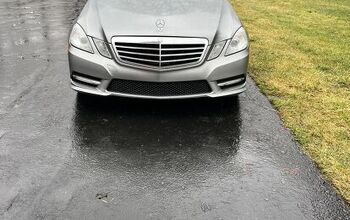Oklahoma To Deploy Photo Ticketing Cameras Statewide
Oklahoma is preparing an unprecedented statewide deployment of automated ticketing machines designed to generate $95 million in revenue. Instead of using red light cameras and speed cameras, the Oklahoma Department of Public Safety (DPS) is preparing to sign a contract with a for-profit company that will track all passing motorists with a network of at least twenty automated license plate recognition (ALPR, also known as ANPR) cameras. The devices would also “generate significant additional revenues” by issuing $250 citations for expired insurance using the Oklahoma Compulsory Insurance Verification System (OCIVS) database that went live in July 2009.
“DPS envisions a system of automated enforcement of vehicle insurance which incorporates, at a minimum, the following processes: capture vehicle license plate data from stationary locations along selected highways using cameras (and) barcode scanners,” a DPS request for information dated October 16, 2009 explained. “Oklahoma’s new license plates include a barcode.”
The proposal includes a requirement for the ability to keep “daily statistics and related data on vehicles for which license plate data was captured,” which could include logging the date, time and location any particular vehicle passes a stationary camera. The two largest red light camera vendors, Australia’s Redflex Traffic Systems and American Traffic Solutions (ATS), which is one-third owned by Goldman Sachs, offer a nationwide tracking service that uses automated ticketing machines. ATS has filed a bid for the Oklahoma contract along with several other companies including InsureNet.
The winning company would install, test, maintain and operate the cameras. It would mail tickets to vehicle owners. It would run a toll-free hotline and conduct “hearings” where motorists would contest camera tickets before a camera company employee instead of a judge. It would collect fines and generate statistics. In return for the right to issue tickets, the company would pay DPS a bounty on each citation collected.
“It is DPS’s preference that the vendor will collect all penalties and take out the agreed percentage and transfer the balance to DPS,” the department explained in an April 27 solicitation amendment.
Widespread use of ANPR in the UK has resulted in a large number of innocent drivers being stopped over insurance verification problems. AA reported in February that it received 20 “mistaken identity” calls per week, mostly generated by errors in the recognition of characters like O and 0 on a license plate. In at least one case, the mistake turned deadly.
On May 19, 2008 a Northumbria, UK police officer engaged in hot pursuit of a vehicle that had been flagged by the plate recognition system. While speeding through the neighborhood, the officer struck and killed sixteen-year-old Hayley Adamson. It turns out that the database information that triggered the alarm was incorrect and the car being chased was had done nothing wrong.
Even one of the vendors seeking to win the DPS contract expressed concern about the accuracy of the databases involved and the impact misreads would have on the program’s bottom line. It also questioned the privacy implications of obtaining insurance information on out-of-state vehicles.
“If the query response is returned with a disclaimer regarding accuracy, and a citation is generated based on inaccurate data, that will ensure negative press and possibly litigation, none of which will help generate revenue and so, projections must be reduced,” a vendor stated in an April 27 amendment. “The vendor and DPS will be accused of ‘trolling’… not really knowing status but hoping that enough vehicle owners will actually be driving uninsured vehicles to make the system profitable. This is certain to create a vast number of failed citations, a very high level of bad press, public resistance and reduced revenues… If a name and address is sent in a broadcast email to many insurers, that would be in clear violation of both state and federal DPPA laws, inviting challenge in the courts and also greatly reduce the ability to provide revenues to the state; that too means that current projections would have to be reduced; this is a serious problem with the current system.”
DPS responded that mass-emails of private information to insurance companies would not violate driver’s license privacy laws because the for-profit company would be operating on behalf of DPS.
“It is respectfully suggested that the vendor concentrate on providing a system for verification of out of state car tags and spend less effort on concerns about OCIVS, per the RFP,” DPS responded.
A copy of the solicitation is available in a 270k PDF file at the source link below.
Solicitation #: 5850000395 (Oklahoma Department of Central Services, 4/2/2010)
[Courtesy: Thenewspaper]
More by The Newspaper
Latest Car Reviews
Read moreLatest Product Reviews
Read moreRecent Comments
- TheEndlessEnigma Of course they should unionize. US based automotive production component production and auto assembly plants with unionized memberships produce the highest quality products in the automotive sector. Just look at the high quality products produced by GM, Ford and Chrysler!
- Redapple2 Got cha. No big.
- Theflyersfan The wheel and tire combo is tragic and the "M Stripe" has to go, but overall, this one is a keeper. Provided the mileage isn't 300,000 and the service records don't read like a horror novel, this could be one of the last (almost) unmodified E34s out there that isn't rotting in a barn. I can see this ad being taken down quickly due to someone taking the chance. Recently had some good finds here. Which means Monday, we'll see a 1999 Honda Civic with falling off body mods from Pep Boys, a rusted fart can, Honda Rot with bad paint, 400,000 miles, and a biohazard interior, all for the unrealistic price of $10,000.
- Theflyersfan Expect a press report about an expansion of VW's Mexican plant any day now. I'm all for worker's rights to get the best (and fair) wages and benefits possible, but didn't VW, and for that matter many of the Asian and European carmaker plants in the south, already have as good of, if not better wages already? This can drive a wedge in those plants and this might be a case of be careful what you wish for.
- Jkross22 When I think about products that I buy that are of the highest quality or are of great value, I have no idea if they are made as a whole or in parts by unionized employees. As a customer, that's really all I care about. When I think about services I receive from unionized and non-unionized employees, it varies from C- to F levels of service. Will unionizing make the cars better or worse?


































Comments
Join the conversation
I agree with the sentiments of those commentators who will be avoiding Oklahoma in the future. I'm not sure that the legislators have really thought out the consequences of having an outside traffic control company fishing around in third party insurance company databases, with the intention of "not" finding something. The outside company, after they don't find insurance coverage, then get to issue large fines to motorists in all 50 states who were so unlucky to pass through Oklahoma. If the motorist believes that they received a $250 citation in error, the motorist can call an 800 number that will connect them directly to the lowest bidding Bangalore call center, where the friendly English speaking staff will be only so happy to assist them. I can just imagine the paperwork drill of proving to the outside traffic control company that a particular motorist had valid insurance on a particular date, especially when the outside company receives zero dollars if the motorist is right, and a cut of $250 if the motorist is wrong. Do the legislators in Oklahoma really believe that it is worth their cut of a measly $250 to royally tick off potential tourists and business visitors to their state?
I wonder if this has any connection to Macquarie's large buy of Redflex shares recently? Why would the operator of many American toll roads buy shares (at a significant markup) in a traffic camera operator?